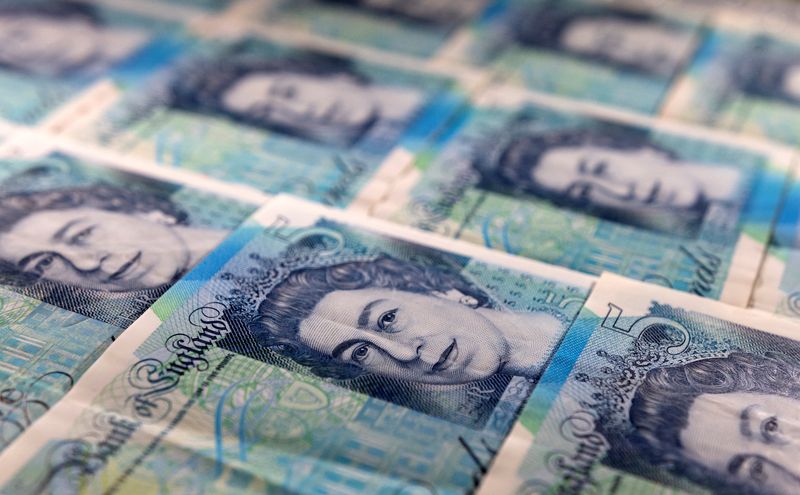By Samuel Indyk
LONDON (Reuters) -The British pound rose against the dollar and fell against a strengthening euro on Tuesday after Ukrainian and Russian negotiators announced progress in their peace talks.
Russia promised to scale down its military operations around Kyiv and northern Ukraine, while Ukraine proposed to adopt a neutral status with international guarantees to protect it from attack.
These announcements prompted a rally in European equities and an unwinding of foreign exchange trades built up since the start of the Ukraine war, according to Vanda Research senior strategist Viraj Patel.
"Sterling was one of the biggest losers from the recent rise in geopolitical tensions and so on a day like this, it's not unusual to see some of bearish positions being squared off," Patel said.
Sterling rose 0.4% against the U.S. dollar to $1.3157 after earlier falling to its lowest level against the greenback since March 16.
Against the euro, which surged over 1.2% against the dollar, the pound declined 0.9% to 84.76 pence, its weakest level against the single currency since Dec. 23.
The pound had earlier fallen against the dollar after Bank of England governor Andrew Bailey said the central bank had started to see evidence of an economic slowdown, which it expected to weigh down on domestically generated inflation.
The comments were seen as another sign that the BoE is becoming more measured in its tightening policy after it raised its key rate for the third consecutive meeting earlier in March.
Money markets are now pricing in a further 133 basis points of tightening by the end of the year but Commerzbank (DE:CBKG) currency and emerging markets analyst You-Na Park-Heger said those assumptions might have to be scaled back.
"Once signs that the British economy is weakening further increase, the market might have to adjust its expectations to the downside," Park-Heger said.

"Medium-term we therefore see downside risks for sterling", Park-Heger added.
Meanwhile, Bank of England data showed lending to consumers rose last month by the largest amount in nearly five years, driven by a record rise in credit card borrowing.